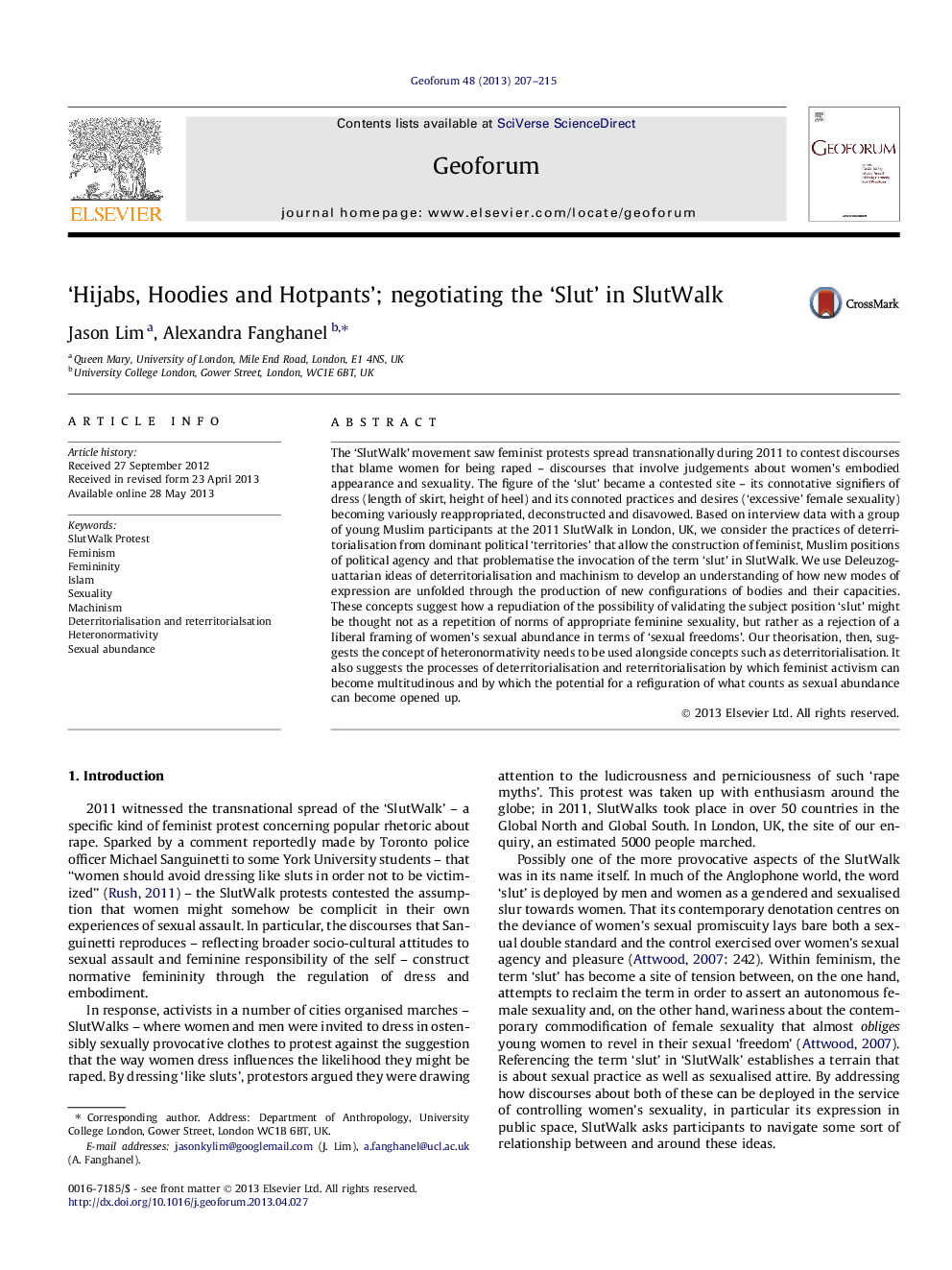| کد مقاله | کد نشریه | سال انتشار | مقاله انگلیسی | نسخه تمام متن |
|---|---|---|---|---|
| 5074258 | 1477141 | 2013 | 9 صفحه PDF | دانلود رایگان |

- The capacity for SlutWalk to accommodate difference is examined and problematized.
- The contested production of Muslim femininity and sexual agency is examined.
- A Deleuzoguattarian and queer theoretical approach is advanced.
- Anti-racist and anti-sexist political possibilities are discussed.
- Different ways of being sexually abundant are explored.
The 'SlutWalk' movement saw feminist protests spread transnationally during 2011 to contest discourses that blame women for being raped - discourses that involve judgements about women's embodied appearance and sexuality. The figure of the 'slut' became a contested site - its connotative signifiers of dress (length of skirt, height of heel) and its connoted practices and desires ('excessive' female sexuality) becoming variously reappropriated, deconstructed and disavowed. Based on interview data with a group of young Muslim participants at the 2011 SlutWalk in London, UK, we consider the practices of deterritorialisation from dominant political 'territories' that allow the construction of feminist, Muslim positions of political agency and that problematise the invocation of the term 'slut' in SlutWalk. We use Deleuzoguattarian ideas of deterritorialisation and machinism to develop an understanding of how new modes of expression are unfolded through the production of new configurations of bodies and their capacities. These concepts suggest how a repudiation of the possibility of validating the subject position 'slut' might be thought not as a repetition of norms of appropriate feminine sexuality, but rather as a rejection of a liberal framing of women's sexual abundance in terms of 'sexual freedoms'. Our theorisation, then, suggests the concept of heteronormativity needs to be used alongside concepts such as deterritorialisation. It also suggests the processes of deterritorialisation and reterritorialisation by which feminist activism can become multitudinous and by which the potential for a refiguration of what counts as sexual abundance can become opened up.
Journal: Geoforum - Volume 48, August 2013, Pages 207-215